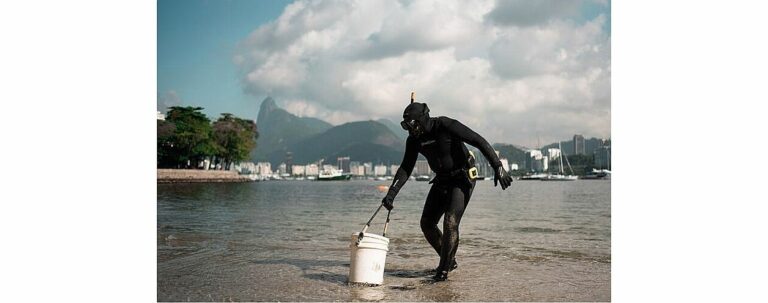If you see yourself as someone who cares about the ocean, it is likely that you have participated in one or more beach clean-ups in the last couple of years. NGOs, schools, companies and even governmental bodies have been organizing them since the explosion of the no-plastics’ global movement. Coastal underwater clean-ups also became more frequent but at a smaller scale, due to the obvious logistics reasons.
Coastal clean-ups appear to be excellent occasions to raise awareness on marine litter. They can also serve to put the spotlight on many other anthropogenic environmental issues that affect the ocean and coastal zones. Ultimately, coastal clean-ups can inspire more people to be better educated about the ocean, circular economy, waste reduction, sustainability, and other concepts that are key for the protection of the planet and the ocean.
With the proliferation of coastal clean-ups above and below the water, the first criticism also appeared. Some say that there is the risk that the public at large starts believing that the only problem affecting the ocean is plastics. Others are concerned that the abundance of beach clean-ups may lead to the misconception that ocean literacy and removing garbage from the beach are the same thing. In a different level, some believe that beach clean-ups fail if they are not followed by a careful characterization of the debris’ categories, claiming that such information is essential to estimate the debris’ sources and to support the decision-making process. In what deals with underwater coastal clean-ups, more food for thought is now emerging after the film Lixo Vivo.
Lixo Vivo (Living Trash in Portuguese) is a short film by Guiga Pirá, a Brazilian photographer and filmmaker from the global NGO Sea Shepherd. The documentary shows the efforts of a Rio de Janeiro’s citizen, who has been cleaning shallow waters surrounding the beach where he grew up. The 10-minute film shows how he tries to clean the water and seabed without harming the many visible and invisible life forms that started using the debris as a life substrate.
The film is available here in its original Portuguese version. You can turn on the automatic subtitles in English.
This film was premiered on Portugal’s Adventure Film Festival, and then screened in different events. Guiga has no doubts: “The feedback has been very consistent. Nobody thinks about this focus on marine life. It really makes sense if we want to protect the ocean when we do clean-ups.”
The film’s message is clear: education is the best way to protect our ocean and planet. In what deals with the trendiest ocean problem, marine litter starts on land and that is where action must begin. As recently suggested in the All-Atlantic Ocean Research Forum, perhaps it is time to stop talking about “marine litter” and start talking about “litter at sea” so that everyone understands where the problem is born. Litter-at-sea can only be solved through enhanced ocean literacy: marine litter… litter-at-sea… literacy… #LitterAtSea2Literacy.
“I’ve been working on this project in Brazil for seven years now. My goal is to raise awareness on this approach so that people organise underwater clean-ups in a more sustainable way. People need to also take into consideration that some marine life will start using the debris, once they reach the ocean” Guiga adds.
How do you feel about this approach? We would love to hear your opinion about it.

